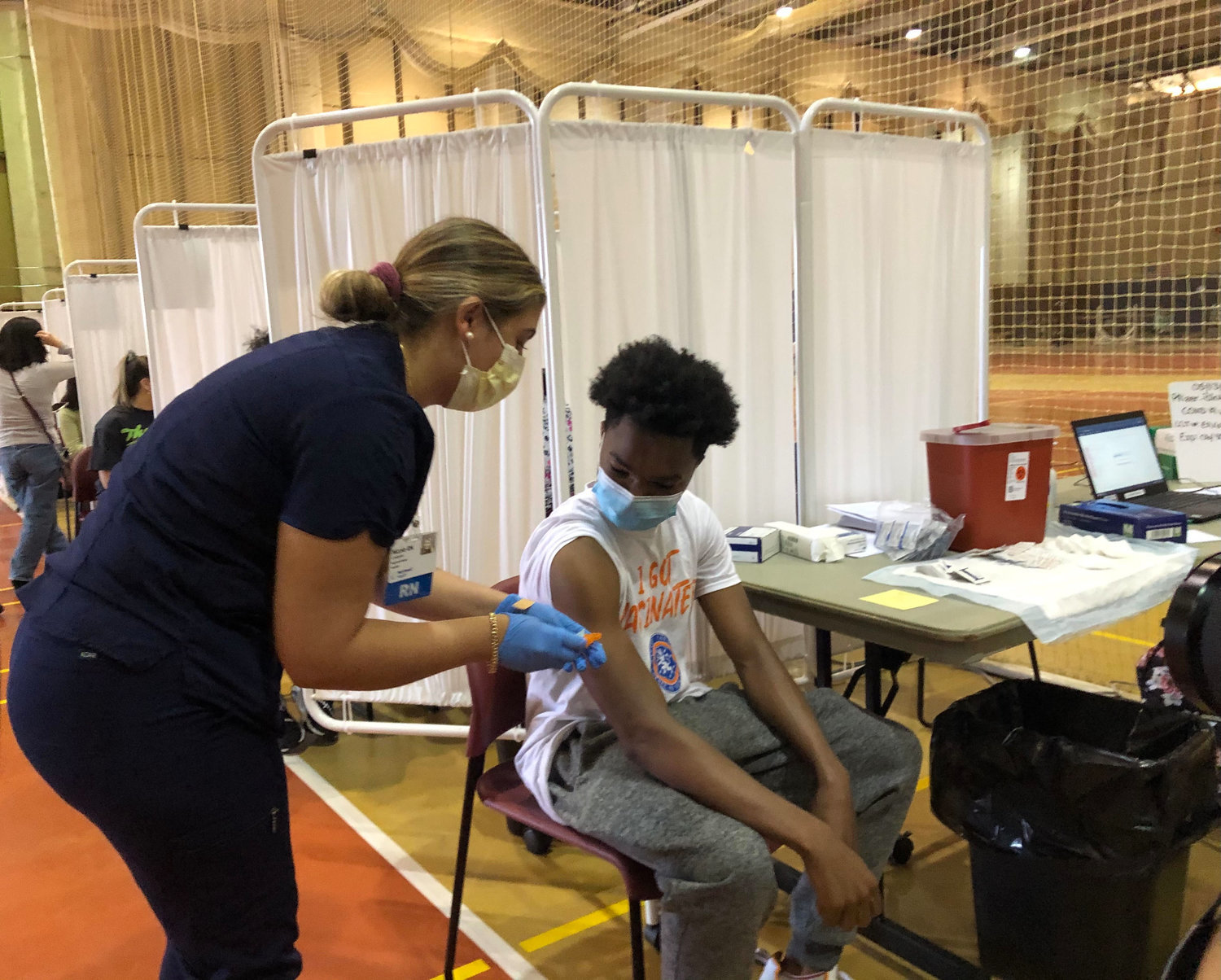At virtual panel, doctors answer parents’ questions about Covid
Panel discusses vaccines and children
After the federal Centers for Disease Control and Prevention and Food and Drug Administration earlier this month approved Emergency Use Authorization for the Pfizer-BioNTech vaccine for children ages 12 to 15, Dr. Shetal Shah, president of New York Chapter 2 of the American Academy of Pediatrics, said pediatricians were inundated by parents’ questions.
“Questions ranged from parents who were enthusiastic about their children getting vaccinated who wanted to know the quickest way to secure an appointment to those who were more hesitant about vaccinating their child,” Shah said.
To help answer parents’ questions, and to alleviate the anxiety they might be feeling about vaccinating their children against Covid-19, Nassau County Legislator Arnold Drucker and State Senators Jim Gaughran, Anna Kaplan and Kevin Thomas partnered with the American Academy of Pediatrics to host a virtual panel May 26 at which parents could ask pediatricians their questions.
“All of these elected officials have shown tremendous dedication to the issue of child health,” Shah said. “We are fortunate to be able to work with such wonderful partners.”
The panelists included pediatricians from hospitals and medical centers across the state, many of whom are experts in pediatric infectious diseases. Parents had the opportunity before, during and after the panel to submit their questions to the doctors.
“Our panelists are all distinguished pediatricians and division heads of pediatric infectious disease at our nationally recognized children’s hospitals,” Shah said.
Gaughran said it was an honor to host a panel of distinguished medical experts, as well as his government colleagues. “You folks have been on the front line dealing with this from day one with testing, vaccinations and I know also what you’re dealing with your patients and helping them get through this,” he said.
Q&A with the doctors
Question: “How effective is the Pfizer vaccine in children between 12 and 15 years old?”
Dr. Leonard Krilov: “The data from the trial with the Pfizer vaccine in 12- to 15-year-olds, although a smaller number than the study that led to approval for adults, shows equal or even potentially better efficacy for the Pfizer vaccine based on the fact that of the 1,200 recipients of the vaccine, there were zero cases detected over time with follow-up versus 16 in the placebo group.
”Question: “Is the vaccine safe for children 12 to 15 years old? How do we know that?”
Dr. Sharon Nachman: “In order for something to get an [emergency use authorization] approval, we need to know
that two doses went into the arms and that two months after dose two, everybody was followed for safety . . . Safety signals were exactly the same as we saw in adults. They had some sore arms, some fatigue, some low-grade fevers, but in fact, they bounced back. If you’re asking me if we have six months or 12 months of a track record of safety, of course we don’t. This is a new vaccine. On the other hand, we have to weigh that against the over 100 million people that were dosed with both the Pfizer and Moderna vaccines across the U.S. . . . We do not expect to see any long-term safety signal in the children.”
Question: “I’ve heard, again, concerns from adults about the Covid vaccine and infertility. Should women be worried about this?”
Dr. Eve Krief: “There’s no evidence that suggests that the RNA vaccines, or any vaccines for that matter, affect fertility . . . The vaccine could not be tested in pregnant women. We just don’t do that. But, [by] chance, 23 women actually did get pregnant during the trials — half of them in the placebo, half of them in the vaccine — and there was no evidence that suggests there was an effect on fertility. Since then, 35,000 women have received the vaccine while pregnant. We don’t just give the vaccine and hope for the best when pregnant women start taking the vaccine. There’s something called DART studies — Developmental and Reproductive Toxicity studies — in animals before the vaccine can be given to women. All those showed no effects on the ability to get pregnant or the safety of the pregnancy and the fetus’s development.”
Question: “My child has already had Covid. Does he need the vaccine and is he or she already protected?”
Dr. Lorry Rubin: “The majority of people that have had Covid do develop antibodies and some level of immunity . . . There’s sort of a rule of thumb that you’re probably protected from another infection for 90 days after your original Covid infection . . . In this case, I would very much endorse getting the vaccine in terms of reliably getting immunity to a repeat infection.”
To watch the panel in full, and to hear more questions and answers from the medical experts, go to facebook.com/LegislatorArnoldWDrucker.

 49.0°,
Fog/Mist
49.0°,
Fog/Mist 




